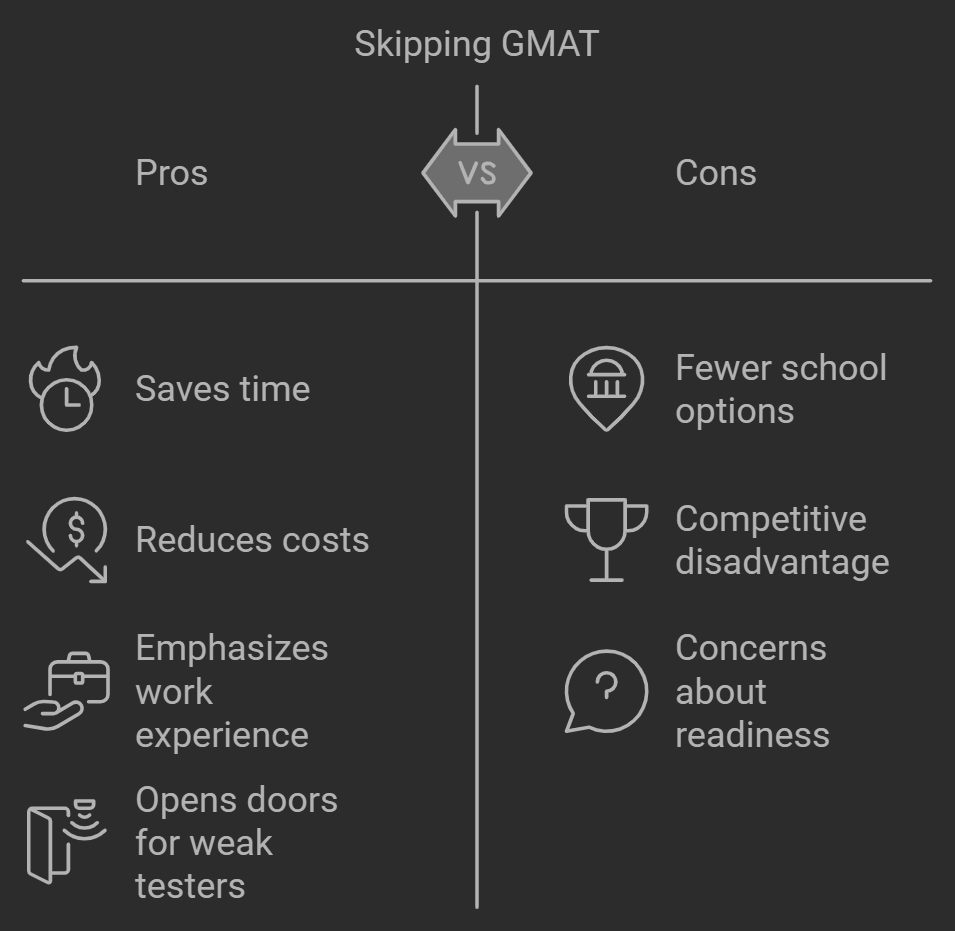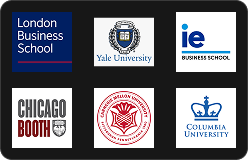
Human Resources Landscape: A Comprehensive Guide to Studying HR in UK
In Current dynamic and ever-evolving business world, human resources (HR) professionals play a pivotal role in driving…
Table of Contents

Have you been wondering why so many Indian students are opting for an MBA in the UK? Well, the UK stands out as a top destination for higher education due to its prestigious universities, shorter MBA durations, and excellent post-study work opportunities. With globally recognized business schools and the added advantage of being a multicultural hub, the UK provides Indian students with a dynamic environment to accelerate their careers.
Over the past few years, there's been a noticeable rise in the number of Indian students choosing the UK for their MBA. Why? The shorter 1-year MBA programs allow students to save time and money while still receiving a world-class education. Additionally, the UK's proximity to Europe’s business hubs, paired with the post-study Graduate Route visa, offers exciting career prospects, making the UK a natural choice for Indian MBA aspirants.
MBA programs in the UK offer several features that make them attractive to students from around the world. These include:
When considering an MBA in the UK, one key decision you’ll need to make is whether to choose a 1-year or 2-year program. Here’s a quick comparison to help you decide:
1-Year MBA | 2-Year MBA |
| Time-efficient: Allows you to get back to work faster. | More in-depth: Offers time for internships and practical experience. |
| Lower cost: Generally less expensive than a 2-year program. | More networking: Provides extra time for networking and career exploration. |
| Popular in the UK: Many UK business schools, like London Business School and Oxford, offer 1-year MBAs. | Less common in the UK: If you prefer a 2-year program, you’ll have fewer options. |
So which is right for you? If you’re looking to get back to work quickly and save on tuition, a 1-year MBA might be the better fit. However, if you prefer a more immersive experience with opportunities for internships, a 2-year MBA may be worth considering.
When you pursue an MBA in the UK, you're stepping into some of the world's most prestigious institutions. Schools like London Business School, Oxford’s Saïd Business School, and Cambridge’s Judge Business School are consistently ranked among the best globally. These institutions offer cutting-edge programs that combine academic excellence with real-world business skills, giving you the perfect launchpad for your career.
One of the biggest draws of an MBA in the UK is the shorter program duration. Unlike other countries where MBA programs can last up to two years, most UK MBAs are completed in just one year. This not only saves you time but also reduces tuition and living expenses, allowing you to return to the workforce faster.
UK MBA degrees are globally recognized, which means they carry weight wherever you go. Additionally, UK business schools have vast alumni networks, often with a strong presence in global organizations. These networks can be incredibly valuable for mentoring, job placements, and long-term career opportunities.
The UK is home to students from all over the world, making it one of the most diverse study environments. This multicultural setting fosters a global perspective, which is crucial for modern business professionals. You'll work alongside peers from various industries and countries, expanding your worldview and honing cross-cultural communication skills.
One of the key advantages of studying in the UK is the Graduate Route visa, which allows you to stay in the UK for up to two years after graduation to work. This provides a crucial window to secure employment and start building your career in the UK. Many students transition from this visa to a Skilled Worker visa, offering pathways to long-term employment and even permanent residency.
Studying in the UK places you at the center of some of the world's most significant business hubs. London is a global financial center, and the UK’s close proximity to other European cities like Paris, Frankfurt, and Amsterdam means you're never far from major international business opportunities. This geographical advantage is ideal for students aiming to pursue global careers.

The UK is home to some of the world's most renowned business schools, offering a range of MBA programs that cater to different interests and career goals. Here's a detailed look at the top MBA colleges in the UK, their rankings, specializations, and unique features.
Business School | Rankings (2024) | Specializations | Unique Features | Average Tuition Fees (GBP) |
| London Business School | Top 5 | Finance, Strategy, Entrepreneurship | Global focus, strong alumni network in finance and consulting, leadership development programs. | £92,000 |
| Saïd Business School (Oxford) | Top 10 | Social Impact, Innovation, Entrepreneurship | Focus on sustainability and social impact, strong entrepreneurial ecosystem through Oxford Foundry, close ties with tech and finance industries. | £75,000 |
| Judge Business School (Cambridge) | Top 10 | Consulting, Finance, Digital Transformation | Strong integration with Cambridge's innovation ecosystem, emphasis on consulting and digital transformation. | £70,000 |
| Imperial College Business School | Top 15 | Healthcare, Sustainability, Data Science | STEM-focused MBA, strong links with healthcare and technology sectors, emphasis on innovation and entrepreneurship. | £61,500 |
| Warwick Business School | Top 20 | Marketing, Consulting, Entrepreneurship | Excellent student satisfaction, leadership and entrepreneurship focus, strong placement in consulting and marketing roles. | £45,950 |
| Alliance Manchester Business School | Top 25 | Finance, Strategy, Innovation | Hands-on learning with live business projects, strong connections with financial services and digital transformation sectors. | £47,000 |
| Cass Business School (Bayes) | Top 30 | Financial Services, Entrepreneurship, Leadership | Proximity to London's financial district, strong finance and entrepreneurship focus, excellent networking opportunities. | £52,000 |
| Durham University Business School | Top 35 | Leadership, Innovation, Entrepreneurship | Focus on leadership development, global alumni network, strong ties to corporate leadership roles. | £35,000 |
| Cranfield School of Management | Top 40 | Operations, Supply Chain Management, Leadership | Specialization in operations and supply chain, close links to government and aerospace sectors, strong focus on leadership in industrial settings. | £42,000 |
| University of Edinburgh Business School | Top 50 | Finance, Marketing, Innovation | International focus, strong emphasis on sustainability and responsible business, growing tech sector with strong local industry ties in finance and marketing. | £38,500 |
This table now includes the 2024 tuition fees, providing a clearer picture of the financial investment needed for each MBA program in the UK.
If you’re considering applying for an MBA in the UK, it’s essential to understand the typical eligibility criteria for admission. Here's what most top UK business schools look for in applicants:
To apply for an MBA in the UK, you will need a bachelor’s degree or its equivalent from a recognized institution. Most schools expect applicants to have achieved at least a 2:1 classification (upper second-class honors) or its international equivalent.
What does this mean for Indian students?
For Indian applicants, this typically translates to a 60-70% or higher score in your undergraduate degree, depending on the grading system used by your university.
Work experience is a critical factor for admission to most UK MBA programs. Generally, schools require applicants to have 3-5 years of professional experience, although some may accept slightly less if other qualifications are strong.
Business schools value applicants who bring real-world experience to the classroom. It enriches discussions and prepares you to contribute meaningfully to the program.
School | Minimum Work Experience (Years) |
London Business School | 3-4 |
Saïd Business School (Oxford) | 3 |
Judge Business School (Cambridge) | 3 |
Warwick Business School | 3-5 |
For non-native English speakers, demonstrating proficiency in English is a must. UK business schools typically accept either the IELTS or TOEFL exams as proof of English proficiency.
While some UK business schools require a GMAT or GRE score, others may offer waivers based on work experience or academic performance. Most schools, however, encourage applicants to submit a GMAT score to strengthen their application, especially for competitive programs.
School | GMAT Required? | Average GMAT Score |
London Business School | Yes | 700+ |
Saïd Business School (Oxford) | Yes | 690+ |
Judge Business School (Cambridge) | Yes | 690+ |
Warwick Business School | Optional | 660+ |
Most business schools require a Statement of Purpose (SOP), where you explain your career goals, why you are interested in the program, and how you fit their student profile. Additionally, you will need to submit Letters of Recommendation (LORs) from professional or academic referees who can speak to your leadership potential and qualifications.
Your SOP should highlight your career trajectory, leadership experiences, and specific reasons for choosing that particular business school. Be sure to align your goals with what the program offers.
Once your application is shortlisted, you may be invited for an interview. This interview is a chance for the admissions committee to assess your leadership potential, communication skills, and whether you’re a good fit for the program.
By meeting these eligibility requirements, you’ll be well-prepared to apply for an MBA in the UK. Ensure your application reflects not only your qualifications but also your unique strengths and how you can contribute to the business school's community.

Tuition fees for MBA programs in the UK vary widely depending on the business school. Below is a snapshot of the average tuition fees for top UK business schools in 2024:Cost of Living in the UK: London vs Other Cities
In addition to tuition fees, you’ll need to account for living expenses, which vary depending on the city. Living in London tends to be more expensive than other cities in the UK.
City | Estimated Annual Living Costs (GBP) |
| London | £15,000 - £20,000 |
| Other Cities (e.g., Manchester, Edinburgh) | £10,000 - £15,000 |
This includes accommodation, food, transport, and personal expenses. Students living in cities outside London can save considerably on accommodation and other costs.
Several scholarships are available to help offset the cost of an MBA in the UK. International students, including those from India, can apply for both university-specific scholarships and external funding opportunities.
Many UK business schools offer scholarships based on merit, leadership potential, or financial need. Here are some examples of scholarships offered by top business schools:
Business School | Scholarships Offered |
| London Business School | London Business School Fund Scholarships, Women in Business Scholarships |
| Saïd Business School (Oxford) | Oxford Pershing Square Scholarship, Saïd Business School Foundation Scholarships |
| Judge Business School (Cambridge) | Cambridge MBA Scholarship, Boustany Foundation Scholarship |
| Warwick Business School | Warwick Business School Scholarships, Warwick Chancellor's International Scholarship |
| Imperial College Business School | Imperial MBA Scholarships, Dean’s Excellence Award |
Indian students have access to several scholarships tailored to them. Some business schools and external organizations offer specific scholarships to help Indian students cover tuition fees and living costs:
Two of the most prestigious scholarships for international students are the Chevening Scholarship and the Commonwealth Scholarship:
In addition to university and UK government scholarships, there are several private and government-sponsored funding options available for Indian students:
With a mix of university-specific scholarships, government funding, and external scholarships, Indian students have several avenues to reduce the cost of their MBA in the UK. Planning early and researching available funding options can help make your MBA journey more affordable.
After completing an MBA in the UK, graduates can look forward to exciting job opportunities across various sectors. The UK's robust economy and access to international markets make it an ideal location for MBA graduates to advance their careers. Let’s take a closer look at the industries, salaries, and companies hiring MBA graduates, as well as the support and strategies available to help Indian students secure top roles.
MBA graduates in the UK are in high demand, particularly in sectors like:
Salaries for MBA graduates in the UK can vary depending on the industry and job role. Here’s an overview of the average post-MBA salaries by sector:
Industry | Average Salary (GBP) | Job Roles |
| Consulting | £80,000 - £110,000 | Strategy Consultant, Management Consultant |
| Finance | £75,000 - £100,000 | Investment Banker, Corporate Finance Analyst |
| Technology | £70,000 - £95,000 | Product Manager, Strategy Analyst |
| Healthcare | £65,000 - £90,000 | Operations Manager, Strategy Manager |
| Entrepreneurship | Varies | Founder, Start-up Executive |
These figures represent starting salaries, with potential for significant growth as you gain experience and take on leadership roles. Graduates working in consulting and finance often earn the highest starting salaries, while tech and entrepreneurship offer a mix of salary and equity-based compensation.
UK business schools provide robust career services to support MBA graduates in their job search. These services include:
Career support doesn't end after graduation. Many UK business schools provide lifetime access to alumni career services, helping graduates navigate career transitions later on.
For Indian students pursuing an MBA in the UK, the job search may come with additional considerations, such as visa requirements and understanding the UK job market. Here are some strategies to maximize your chances of securing a top job:
With these strategies and the support of your business school, Indian students have strong pathways to secure high-paying jobs and build successful careers in the UK.

For students pursuing an MBA in the UK, the country offers attractive post-study work and immigration options, making it a desirable destination for building a career. These pathways allow international graduates, including Indian students, to stay and work in the UK after completing their degree. Here’s a breakdown of the key immigration pathways and opportunities for Indian students to transition from education to long-term employment in the UK.
Post-study work visa and immigration pathways available for MBA graduates in the UK:
Immigration Pathway | Duration | Eligibility | Key Benefits |
| Graduate Route (Post-Study Work Visa) | 2 years (3 years for PhDs) | Completion of a degree from a UK licensed sponsor institution | Work or search for jobs without sponsorship, explore job opportunities, gain UK work experience. |
| Skilled Worker Visa | Up to 5 years | Job offer from a UK licensed sponsor, meeting the salary threshold (usually £26,200 or higher) | Transition to long-term employment, pathway to permanent residency (Indefinite Leave to Remain). |
| Indefinite Leave to Remain (ILR) | Permanent residency | 5 years of continuous residence in the UK under a Skilled Worker or other eligible visa | Live and work in the UK without restrictions, eligible for British citizenship after 12 months. |
| British Citizenship | Permanent | Holding ILR for at least 12 months | Full citizenship rights, including the ability to live, work, and travel freely within the UK. |
Yes, you can pursue an MBA in the UK without a GMAT score at several top business schools. Many universities offer GMAT waivers for candidates who demonstrate exceptional academic backgrounds or significant professional experience. Let’s explore the schools that offer GMAT waivers, the criteria for obtaining them, and the pros and cons of applying without GMAT.
Several UK business schools offer GMAT waivers, allowing candidates to apply without submitting a GMAT score if they meet certain criteria. Here’s a list of schools where GMAT waivers are available:
Business School | GMAT Waiver Offered? | Conditions for Waiver |
| Warwick Business School | Yes | Significant work experience, academic excellence |
| Durham University Business School | Yes | Strong academic record, relevant work experience |
| Cranfield School of Management | Yes | Extensive professional experience |
| Imperial College Business School | Yes (case-by-case) | Exceptional career track or postgraduate qualifications |
| Alliance Manchester Business School | Yes | 10+ years of work experience, managerial roles |
Criteria for GMAT Waiver | Details |
| Work Experience | 5+ years of professional experience, particularly in leadership or managerial roles |
| Academic Excellence | First-class honors degree or equivalent, strong academic performance |
| Professional Certifications | Relevant certifications like CFA, ACCA may qualify for a waiver |
| Exceptional Career Track | Senior roles, leadership experience, or significant career achievements |

Pursuing an MBA in the UK offers numerous advantages, from world-class education to strong job prospects and immigration pathways. Whether you’re looking to fast-track your career or settle in the UK, the country provides ample opportunities for Indian students to thrive both academically and professionally.
Ready to start your MBA journey in the UK? Let MastersBuddy guide you through every step—from selecting the right business school to navigating scholarships and visa applications. Contact MastersBuddy today for personalized advice and expert support on your study abroad journey!
